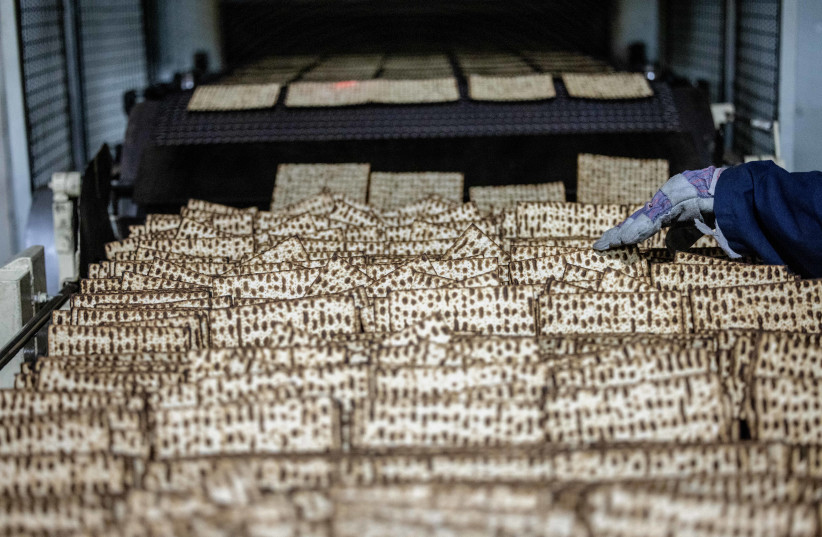What do Tuscan bread and matzot have in common? Neither of them have salt!
The tradition of baking bread in Tuscany without salt (perhaps the only such bread in the world beside matzah) probably originated in medieval times when salt was highly taxed, making it a luxury. According to some legends the tradition began during a siege where salt was scarce.
Either way, the Tuscans decided to continue the tradition, and it is now a hallmark of their bread that its bland taste contrasts and complements the spicy nature of the rest of their cuisine.
The reason that there is no salt in matzah is a different story. First, a qualification – the lack of salt is predominantly in matzah eaten by the Ashkenazi community. Many Sephardi communities, most notably the Yemenites, do bake their matzot with salt.
The reason Ashkenazim do not mix matzah dough with salt is complicated. Numerous ancient Rabbinic rulings state that the addition of salt increases the temperature of the dough and accelerates the fermentation process (although this has been disproven in the lab; on the contrary, the addition of salt retards fermentation). Despite modern scientific findings, these deep-rooted rulings remain unchanged, and to this day all factory matzah is made without salt.

This reality seems to contradict the fact that matzot baked in the Tabernacle and in the First and Second Temples all had salt added. Another characteristic of those ancient matzot is that they were kneaded with lukewarm water, as opposed to more modern-day matzot, which are mixed with cold water, to retard fermentation. The Priests/Levites in the Temple were regarded as artisans who were more knowledgeable and adept than the average housewife bakers who (until around 150 years ago) used to bake their own matzot for Passover. This was probably the trigger for instituting additional limitations on home-baking matzot.
Another reason for not adding salt to matzah dough has to do not with chemistry but with symbolism. Matzah is regarded as “poor man’s bread,” symbolic of our slavery in Egypt, and the lack of flavor emphasizes this.
Bread without salt is insipid and bland. Unless combined with some addendum, it does not make for pleasurable eating. It is permitted to sprinkle salt onto already baked matzot, even for Ashkenazim, but most people, me included, enjoy matzah spread with jam for breakfast. Salt is optional.
Happy Passover. ❖
<br>APPLE WALNUT CAKE
- 1½ cups margarine/butter (softened), or ¾ cup oil
- 3 cups sugar
- 4 eggs
- 2 tsp. vanilla essence
- 3 tsp. baking powder
- ½ tsp. salt
- 1 tsp. cinnamon
- 3 cups matzah flour (fine)
- 1 cup potato starch
- 2 cups (any) fruit juice
- 2 apples (peeled, cored and sliced)
- 1 cup walnuts (chopped)
Cream butter/margarine/oil and sugar in mixer. Add eggs, vanilla, baking powder, salt, cinnamon and mix well. In a separate container, mix matzah flour and potato starch. Add half the flour/starch mixture to the batter, continually mixing, followed by a cup of juice, the second half of the flour/starch, and finally the second cup of juice. Mix well. Add the sliced apples and nuts to the mixture until fully incorporated.
Pour batter into greased cake tin. Bake at 180ºC for 45 minutes or until the center is solid (test with a toothpick).
The writer, a master baker originally from Johannesburg, is CEO of the Saidel Jewish Baking Center (www.jewishbakingcenter.com). He also manages the Showbread Institute (www.showbreadinstitute.org).
